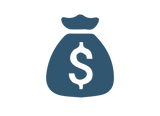
AIM: 100% SUSTAINABILITY
FROM PADDY TO PLATE
PEOPLE, PLANET, PROFIT
Rice is consumed in over 175 countries across the world, serving as a dietary staple to more people than any other food. Globally, rice cultivation is the largest use of agriculture land. Almost 1 billion households depend on its cultivation for their primary source of income and employment. (Source: IRRI)
Rice is a major polluter, responsible for around 2.5% of all global human-induced GHG emissions - rice’s climate footprint is comparable to that of international aviation (Source: CCN). The 60 million tonnes of paddy lost annually, releases circa 80 million tonnes of CO2, and consumes 1.5 trillion litres of water, for no gain (Source: FAO). To meet the expected demand by 2050, we must make better use of what is already grown. Simply growing more rice is no longer a viable option.
At Koolmill we strive to transform this outdated industry by delivering a modern, ultra-low power, simplified and sustainable approach to cereal processing. Our vision is to transform this antiquated and wasteful global industry that feeds 3.5 billion people daily, and lift millions from food and fuel poverty.
WE WILL DO THIS THROUGH


THE PROBLEM
an antiquated, unfair and broken industry wasting food and energy
WASTEFUL
Annually 60 million tonnes of rice is lost post harvest. This is enough to feed 600 million people for a year.

INEFFECIENT
The machinery used by SME millers is very energy inefficient leading to increased running costs.

EXPENSIVE
New machinery is unaffordable to SME millers who are trapped in a cycle of using low quality copies.
.png)
EXCLUDED
1.5 million SME miller are excluded from accessing high value markets due to old, low performing machinery

UNFAIR
The distorted rice value chain favours multinational corporations at the expense of SME millers and smallholder growers.

LARGE CO2 OUTPUT
Raw paddy travels unnecessary distances for processing and then back for consumption resulting

7
Countries
40
Strategic Partners
8
Projects
13
Awards Won


THE SOLUTION
modern, data driven and sustainable - producing more by milling less
DATA-DRIVEN
Koolmill's smart milling technology reduces food loss by reducing the volume of wasted rice from 30% to 2%

GREEN
Koolmill's 'cool' milling technology uses up to 90% less energy than existing machinery and can be powered by renewables

AFFORDABLE
The 'pay as you mill' business model negates high up front costs in favour of monthly commission

INCLUSIVE
1.5 million SME millers can access high performance machinery and can now supply high value markets

FAIR
The rice value chain is rebalanced - smallholder growers get a fair price for their paddy and SME millers can compete with multinationals

LOW CARBON
Raw paddy is grown, milled and consumed at source - dramatically reducing carbon output


Koolmill can increase the country’s rations for nearly 100 million people in one year or increase about 2 million hectares* of invisible fertile land; it can also save more than 3 billion kilowatt-hours of electricity and reduce carbon emissions by more than 2.6 million tons.
*that's the same size as Wales/New Jersey, USA/Slovenia
Zhang Wufeng, Director of the State Bureau of Grain and Material Reserves, Chinese Government
SUSTAINABLE DESIGN
SIMPLE, ROBUST, GENTLE IN NATURE
At the outset a conscious decision was made to design machinery that would be sustainable with the intention of re-manufacturing rather than recycling at the end of contracts. The extensive use of stainless steel, elegantly simple and robust modular design and gentle nature of the process achieves this.
Our concept is to remanufacture and reuse, minimising end of life cost and impact. Machines are engineered for extended life cycles (15 years) with minimal maintenance. Rather, Koolmill is a consumables business where extensive automation, control, and remote monitoring support operations and protect machinery, people and rice from damage due to malfunction.
The core machine will not change, performance gains will come from the evolution of the chamber design. The modular design facilitates the upgrading of machines during, or at the end of contracts.
CIRCULAR ECONOMY
Koolmill works with international partners to create additional value by avoiding waste and utilising every part of the rice plant. Koolmill’s sustainable process valorises waste products, converting bran into a nutritious and valuable human food ingredient and husk/straw into a source of power, heat and potentially a replacement for Portland Cement in concrete. Koolmill are the only company in the world that are able to permanently separate bran from milled rice at point of separation.

SUSTAINABLE
DEVELOPMENT GOALS
Koolmill directly contribute to 16 out of the 17 sustainable development goals defined by the United Nations.
Profit with purpose...delivering impact!

Koolmill contribute directly to 16 SDG's....






